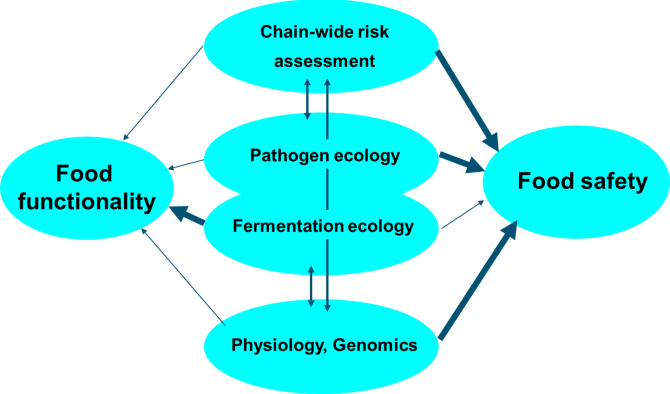
Research of the Laboratory of Food Microbiology
In order to control food safety and quality from primary production to consumption, solid knowledge of Food Microbiology is necessary. In Food Microbiology both positive (fermentation) and negative aspects (spoilage, disease) of micro-organisms are studied. Except for longer shelf life and better taste of fermented products (e.g. yogurt, salami, beer, tempeh), positive health effects of micro-organisms (e.g. improved digestibility, breaking down harmful components) are topics of research. For better understanding the behaviour of spoilage organisms and pathogens, especially under stress conditions, physiology and genetics are indispensable.
Moreover, to prevent contamination with microorganisms, good manufacturing practices (including personal hygiene) and the principles of cleaning and disinfection are included in this discipline. All this knowledge of micro-organisms, together with data about their presence in food products and in the environment, make it possible to develop models for their behaviour. These models may be used to predict shelf life and safety of food products and can be used in quantitative risk assessments.
The four main fields of the research programme are:
- Quantitative Risk Assessment
- Quantitative Ecology of Pathogens
- Food Fermentation
- Physiology and Genomics
Many research projects are carried out at the interface between several fields.
